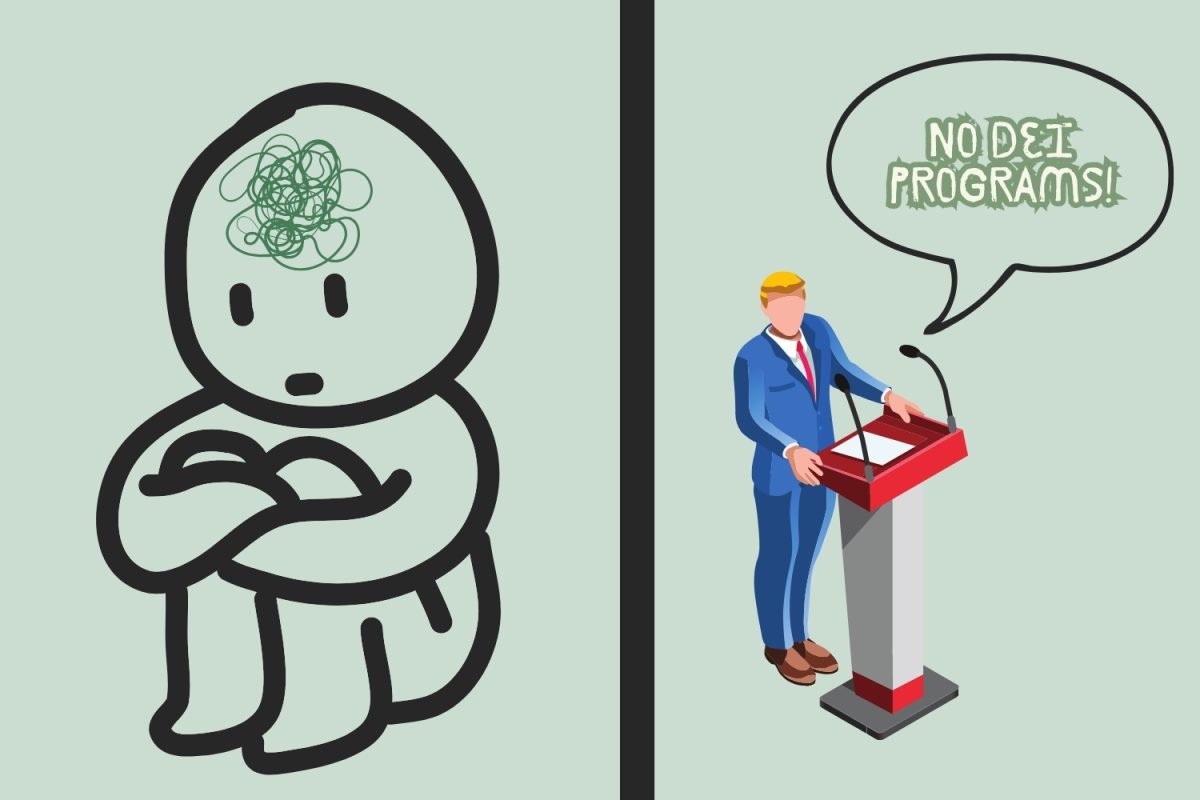Ever since Donald Trump said he would refuse to leave the White House peacefully after the election, concerns were raised whether or not he could really do such a thing. He’s been challenging the legitimacy of the election for years now and could take a lost election all the way to the Supreme Court. Others think that Trump would really go to this length to preserve his seat in the Oval Office, or that he’ll even have a significant case. Here are the two possibilities that are unfolding now that Biden has won the presidential election.
 Jacob Frank, Opinion Editor
Jacob Frank, Opinion Editor
Even as the election comes to a close, it might not be time to celebrate yet.
Joe Biden has taken the victory, but Trump’s campaign and supporters are still working tirelessly to undermine the election results and challenge the legitimacy of vote counts. The campaign has already filed lawsuits in Pennsylvania, Michigan and Georgia, and requested a recount in Wisconsin.
There is also fear that he will take some of these cases to the Supreme Court, prolonging Biden’s inauguration while he holds on to the White House by a thread.
The good news is that he cannot just plop a case into the laps of the Supreme Court. He would have to start in the lower courts and make his way up. The bad news is that if he manages to get it there, they may rule in his favor.
There have already been cases of republicans in local elections trying to challenge the legitimacy of their polling places in some states.
The Texas Supreme Court rejected a republican-led attempt to eliminate almost 127,000 votes that were cast on electronic ballots in drive-thru polling places, which were implemented to reduce the spread of coronavirus.
The challengers argued that the drive-thrus were illegal, while others held that the votes would still be valid regardless.
Although this attempt was squashed, all it takes is a similar case with a significant angle to make it to the Supreme Court where Trump could have six judges in his favor.
The Senate confirmed the appointment of Justice Amy Coney Barrett in October, marking Trump’s third Supreme Court pick. The court now largely leans conservative.
But they won’t see anything, let alone approve it unless there is a significant charge of fraud or mishandling of votes in the states.
But once the right angle falls into Trump’s lap, there is no doubt he will use it; his team is probably scrambling to find it right now. It was evident since he first questioned the legitimacy of mail-in votes that would be crucial during the pandemic.
And there’s no reason he wouldn’t challenge it. Trump is chancellor in the land of “if there’s a loophole, there’s a way.”
 Ryan P. Cruz, Editor-in-Chief
Ryan P. Cruz, Editor-in-Chief
President Donald Trump has been signaling his plans about challenging the validity of the election for months, with baseless warnings of widespread voter fraud and threats to take it to the Supreme Court if the results weren’t in his favor.
As the official count dragged on and it became apparent that former Vice President Joe Biden would win in key swing states, Trump realized his presidency was slipping through his fingers and gave a speech from the White House early Wednesday discrediting the election and vowing to go to the Supreme Court.
When his nominee Amy Coney Barrett was confirmed as a justice, it seemed that Trump was moving all the pieces in place for an official challenge on the legitimacy of the vote—specifically the mail-in and drop-off ballots that were coming in and being after election day.
But Trump’s relentless alarm-ringing rarely leads to action. Throughout his term, the president has repeatedly failed to follow through on his promises and plans. From his promise to build the wall along the southern border to his nonexistent healthcare plan, Trump had shown that he is not to be trusted at his word.
His campaign has filed challenges in six states—Pennsylvania, Michigan, Wisconsin, Georgia, Nevada and Arizona—with a variety of complaints from poll-watcher access to problems with ballot processing.
But actually taking it to the Supreme Court could prove extremely difficult, if not impossible. These challenges are only the first step in a long process to uphold a challenge to the election result.
State judges would have to order a recount that would likely find the same results.
There is simply not enough evidence for the Supreme Court to overturn the election. The processes of this country have been in place since its founding, and there are many checks and balances to prevent any person or group from taking over.
The people spoke on election day, and Joe Biden won both the popular and electoral votes.
This is not a repeat of Bush and Gore, which was much different and hinged on the state of Florida. Biden’s margin of victory left no room for doubt and closed the door for Trump’s Supreme Court challenge.














![Ken Watts uses the cable chest press machine on April 9 in Santa Barbara, Calif. "[What] people value the most in personal training is accountability," Watts said.](https://www.thechannels.org/wp-content/uploads/2025/04/MGSWatts-3-1200x800.jpg)